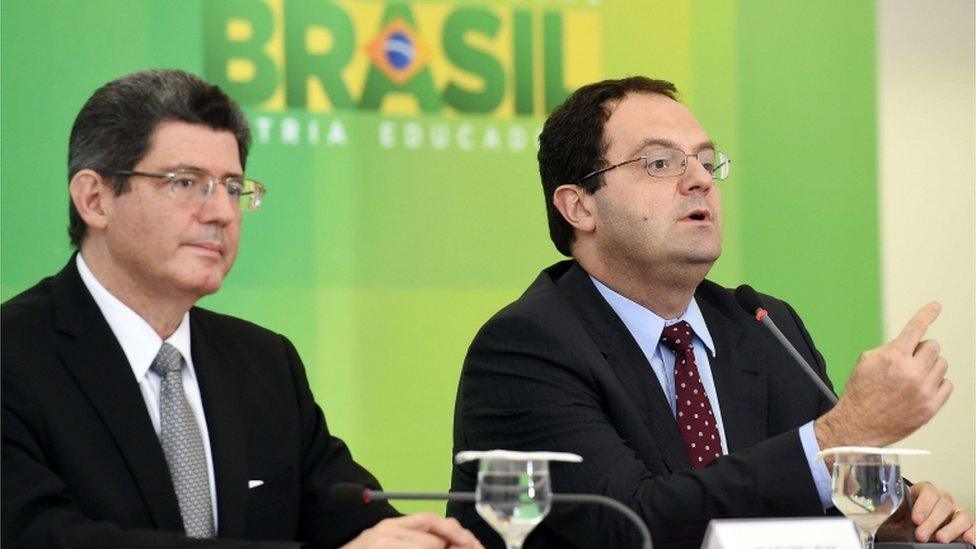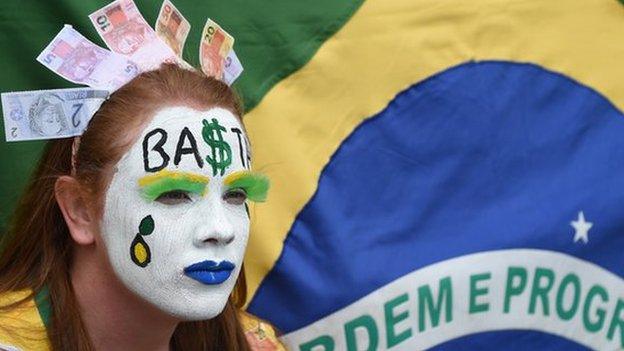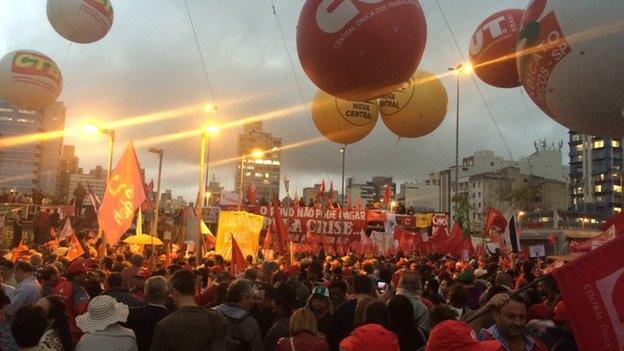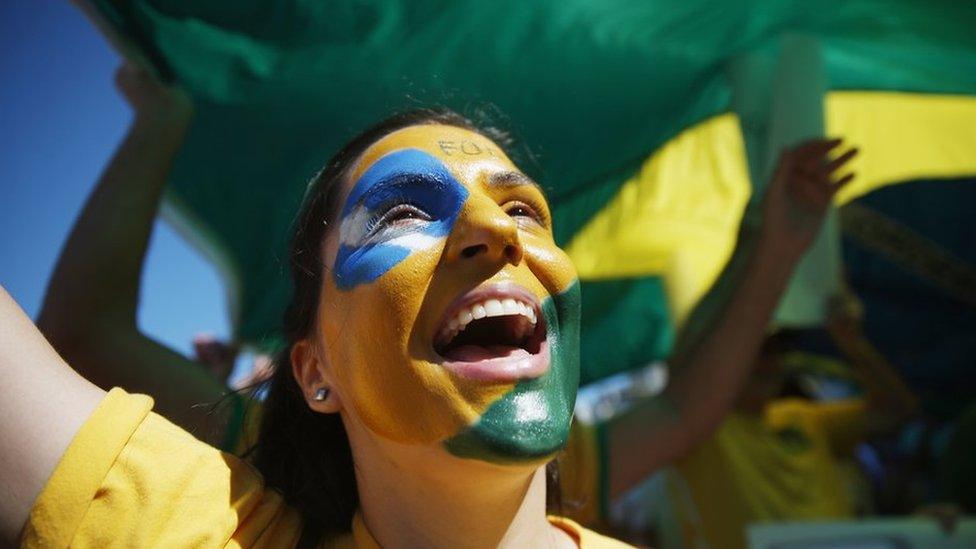Brazil cuts spending and raises taxes
- Published

Mr Levy and Mr Barbosa's announcement was long-awaited
The Brazilian government has announced a $7bn (£4.5bn) package of spending cuts aimed at plugging a huge black hole in the country's 2016 budget.
At the same time, it unveiled plans to raise another $8bn by bringing back an unpopular financial transactions tax that was abolished eight years ago.
The government is struggling to pull the country's economy out of recession.
It has also been hurt by the slump in President Dilma Rousseff's public approval rating, which is now just 8%.
The measures were announced at a news conference by Finance Minister Joaquim Levy and Planning Minister Nelson Barbosa.
They include reducing the number of government ministries from 39 to 29, as well as cutting 1,000 public-sector jobs and freezing the pay of remaining state employees.
End of boom
Mr Levy said the axe would fall on some big public infrastructure projects. But projects designed to benefit poorer Brazilians, such as the social housing programme Minha Casa Minha Vida (My House My Life), will also be hit.

Ms Rousseff's popularity has slumped to just 8%
Analysts were unimpressed with the package, saying it was unlikely to do much to restore the public finances to health.
"We're left with the impression that the government is now scraping the barrel in an effort to plug its budget hole," said Neil Shearing, chief emerging markets economist at Capital Economics.
"Indeed, the latest measures reveal more about the impotence of the government in being able to constrain spending than anything else."
Brazil's economy has been depressed by the end of the global commodities boom, while a corruption scandal centred on state oil giant Petrobras has damaged investor confidence.
President Rousseff's critics also accuse her of policy mistakes during her first term, including interventions in the energy market and a failure to bring inflation under control.
But many supporters of her left-wing Workers' Party have revolted against her newfound attempts at austerity, with the MST land-reform movement accusing her of having adopted a "neo-liberal" programme at odds with her election promises.
Last week, Brazil lost its investment-grade credit rating following a downgrade by Standard & Poor's to "junk" status.
The US rating agency said mounting political turmoil and the difficulties faced by President Dilma Rousseff's government in tackling growing debt was behind the decision.
- Published10 September 2015

- Published28 August 2015

- Published28 August 2015

- Published17 August 2015
